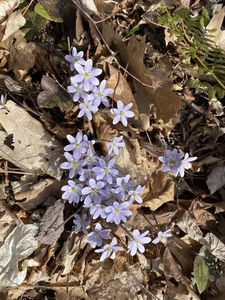My Abuser Died
By Lorrie Potvin
Trigger Warning – Sexual Violence, Childhood Sexual Abuse, Trauma.
I have pondered the title of this thread for weeks now, wondering if I should lead with a softer opening. Something like, ‘the man who controlled and abused our family has died’ or ‘the man, who I thought for almost 40 years was my real father, has passed away.’ There are innumerable ways we can word wiggle around the hard truths of life. But, like the billboard put up by the Lanark County Interval House along Highway 7, halfway between Perth and Carleton Place, that challenges domestic violence with the statement, SEE IT, NAME IT, CHANGE IT, I want to be clear, the abuser who terrorized our family is dead.
Originally launched in 2017, the SI-NA-CI campaign was re-launched earlier this year to include a lower banner, End Racism. Erin Lee, Executive Director of LCIH, in an interview with the Toronto Star explains, “Racism, hate, and violence are lived realities for many. Taking a step toward change offers an opportunity to dialogue, educate, and learn from each other about our shared and unique history, our present conditions, toward an inclusive future. If you see it, name it, and change it.”
I’ve lived it and I’m naming it. And since I’m writing on this forum about writing, I need to talk about my abuser. As a survivor of childhood sexual abuse, he was my ‘traumuse’. After years of denial, I turned to writing as a way of trying to understand the daytime violence and nighttime visits. It was bad, awful writing, long and painful. At the same time, it was cathartic, the start of my healing journey. I’m full of gratitude for it. And I’m also grateful for the early readers, a creative writing group I belonged to. Their feedback was always careful and kind. I recognize now how difficult it might have been for some to find that balance, because to criticize my writing could be seen as a questioning of my truth, my experiences.
To use a current description making the rounds, my early pieces were more like misery porn, although they were never meant for public consumption. They were a purging, a regurgitation of everything I’d survived, being kicked down the stairs, beaten with a belt, head banged against a wall. One piece was list-like, a step-by-step description of his raping me – forcing, holding, manipulating, penetrating, grunting, coming. The smell of his breath, the scratch of his beard, his oppressive weight. After sharing the list, an older woman, a poet, lingered while the group dispersed. When we were alone, she smiled and shared her deconstruction, having removed three-quarters, highlighting other lines, “That’s all you need my dear. Less really is more. Trust the imagination of the reader.”
For my abuser to re-appear this summer past was surprising. I had long thought of him dead and gone. Maybe it was wishful thinking. Controlling to the end he had refused to tell the care home the names of his children. He lay unclaimed for six days before the funeral home called the police. Telling and sad.
I helped my brothers sort through his belongings. Tucked in the bottom of one box was a stack of white hankies. My legs crumpled and I started to cry.
Basement, dark, musty. I pull a wrinkled hanky from a hamper, lay it flat on the ironing board, run the hot iron over it. Fold, iron, fold, iron. Precise work as demanded. I place the flat rectangle carefully on the stack and turn my attention to his boxer shorts. Iron, fold, iron, fold.
Thanks to the poet and many other beautiful writers I’ve sat around tables with, I’ve learned we only need to plant ideas, little seeds readers can water and nurture through the lenses of their own lived experiences.
Blessings and love,
Your CanLit News
Subscribe to Open Book’s newsletter to get local book events, literary content, writing tips, and more in your inbox
Lorrie xo
The views expressed in the Writer-in-Residence blogs are those held by the authors and do not necessarily reflect the views of Open Book.
Tradeswoman, artist, writer, and teacher Lorrie Potvin, a queerishly two-spirited Métis, is the author of Horses in the Sand: A Memoir. Her first book, First Gear: A Motorcycle Memoir and the essays "My tattoos speak of life and loss" and "Why I’m thankful for multiple sclerosis" (The Globe and Mail), were published under her previous surname Jorgensen, as was the short story, "The 13th Dock" in Writing At Wintergreen, an anthology edited by Helen Humphreys.
Working and teaching in the trades for over 30 years, Potvin holds an Inter-Provincial Red Seal in Auto Body Repair and Refinishing from Algonquin College and a diploma in Technological Education from the Faculty of Education, Queen’s University, with additional qualifications in Manufacturing and Special Education. A citizen of the Métis Nation of Ontario, Lorrie lives on a lake north of Kingston in the area served by the High Land Waters Métis Council where she’s lived for 30 years, building her home and creating art made of stone, wood, hide and steel.




